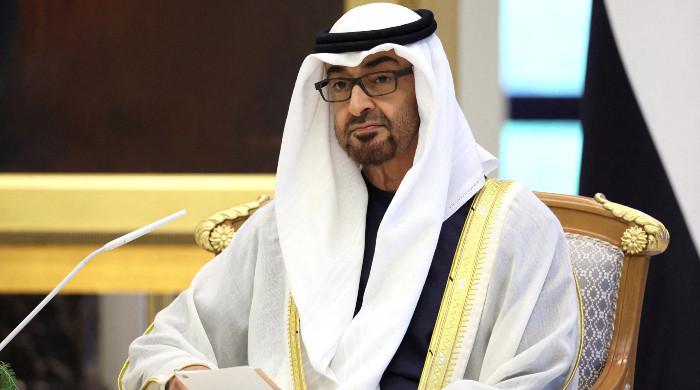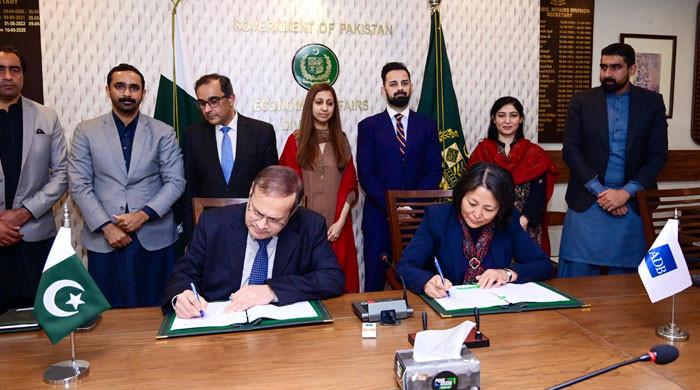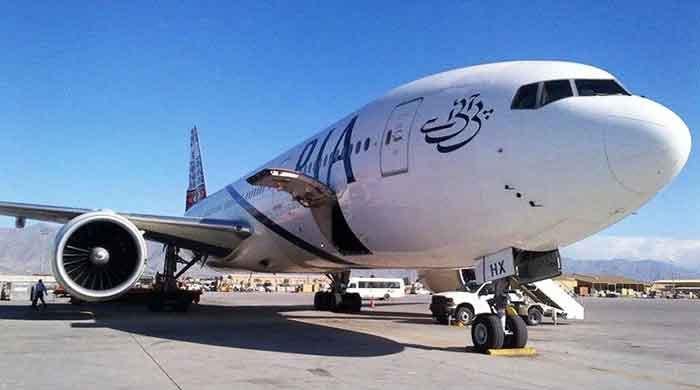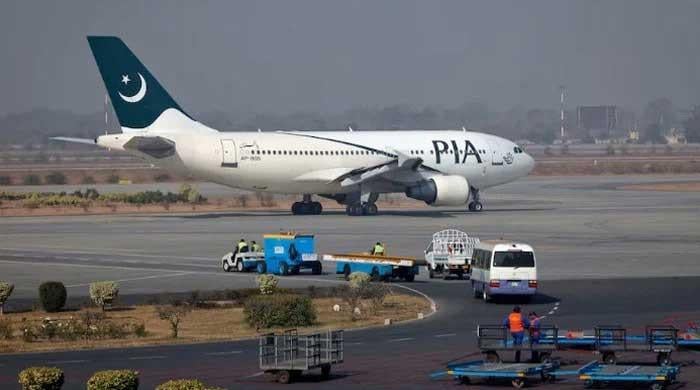Saudi Arabia's $3b additional deposits conditional to revival of stalled IMF programme: report
An official says Saudi govt indicated that talks on further deposits are only possible if Pakistan goes back to IMF programme
May 10, 2022
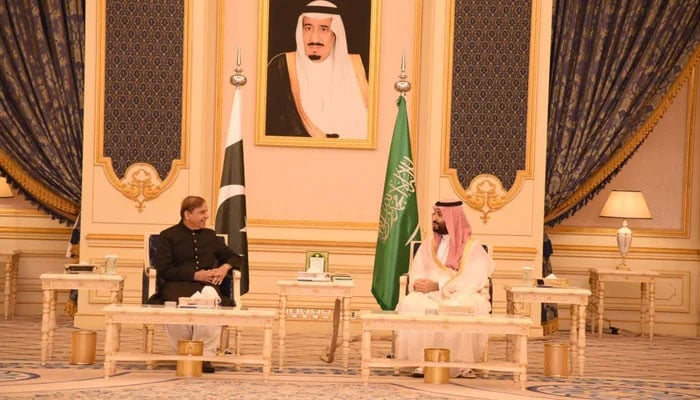
- An official says Saudi govt indicated that talks on further deposits are only possible if Pakistan goes back to IMF programme.
- Adds Pakistan sought additional deposit and oil financing facility during visit of PM Shehbaz.
- Govt has also requested Saudi Arabia not to withdraw $3 billion deposits from SBP.
KARACHI: The Saudi Arabian government has made the possibility of offering up to $3 billion additional deposits to Pakistan's central bank conditional on Islamabad’s revival of the International Monetary Fund’s (IMF) stalled bailout programme, officials said on Monday.
“They indicated that talks on further deposits are only possible if Pakistan goes back to the IMF programme,” an official at the finance ministry, who asked not to be named, told The News.
Last year, Saudi Arabia deposited $3 billion in the State Bank of Pakistan (SBP) for one year at 4% interest under a support package for the country’s foreign reserves. The support package also included a $1.2 billion oil loan facility.
A statement followed a visit by Prime Minister Shehbaz Sharif to Saudi Arabia earlier this month said the two countries will discuss the possibility of supporting the Kingdom's $3 billion deposit in Pakistan's central bank by extending its term "or through other options”.
Read more: Pakistan needs to reduce its current account deficit, IMF says
The official said Pakistan had sought additional deposit and oil financing facility during the visit of PM Shehbaz. Analysts said the country immediately needs to resume the stalled $6 billion loan programme to stave off a balance of payment crisis and help shore up its economy.
The economic turbulence facing the country was underlined when its three close allies Saudi Arabia, United Arab Emirates and China declined to financially support Pakistan without bringing the IMF on board.
With the central bank, foreign exchange reserves dwindling to a $10.5 billion, just enough to cover less than two months of imports, the delay in the finalisation of new deals from the friendly countries prompted the PMLN-led coalition government to start negotiations with the IMF for the revival of the bailout.
The government of PM Shehbaz has requested Saudi Arabia not to withdraw $3 billion deposits from the SBP, but to extend the maturity on this debt. Pakistan is awaiting a rollover of $2.3 billion Chinese commercial loans. Another $1 billion Chinese deposit is maturing this and the next month.
Read more: IMF team to visit Pakistan in May after holding meetings with Finance Minister Miftah Ismail
Islamabad and the Fund are likely to begin policy-level discussions on May 18 in Doha subject to start withdrawing fuel subsides from May 15 to revive the programme and extend its tenure and size to $8 billion.
Analysts said the government will have to make some very tough political choices, especially on the fiscal side — increasing fuel prices. In February, the former prime minister Imran Khan announced the freezing of electricity tariffs and retail fuel prices till the next budget against Pakistan’s commitment with the IMF to maintain fiscal tightening.
“Extension of the IMF Programme and increase in assistance are secondary considerations for the time being. The immediate requirement is to secure the revival of the suspended programme as that is a precondition for further bilateral and multilateral loans which are required to meet the debt repayments coming due shortly,” said Pakistan Business Council CEO Ehsan Malik.
“Also the Saudi deposit is contingent on the IMF programme. A precondition for revival of the IMF Programme is reversal of fuel subsidies, which is a hard call that the government will find difficult to take under the present political conditions,” Malik added.
Fahad Rauf, the head of research at Ismail Iqbal Securities said it appears that flows from friendly countries are dependent upon IMF programme resumption.
“IMF is not wrong in asking to cut subsidies in order to stop the fiscal bleeding. I think the government. would try to resume existing deals which will yield more flows in quick time (half of the programme funds pending). For that to happen, some painful adjustments will have to be taken, especially the increase in petroleum and electricity prices,” Rauf said.
Out of the total IMF package worth $6 billion, the country has drawn $3 billion so far.
“An only viable option for Pakistan is to resume the IMF program without any delay. With the IMF other sources of funds will also come in. Some bitter pills are necessary though it will be unpopular,’ said Mohammed Sohail, CEO at Topline Securities.
Originally published in The News




